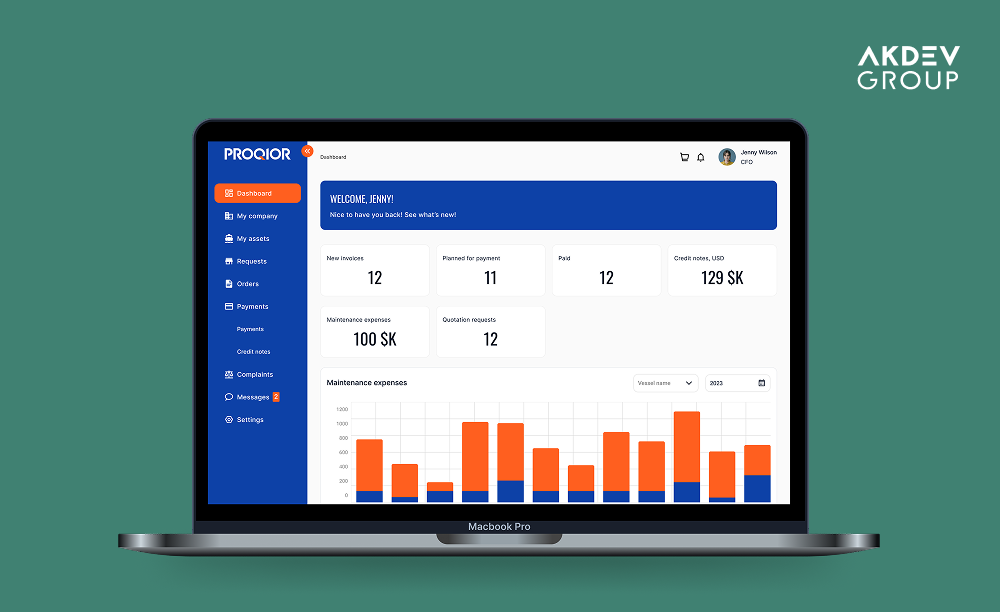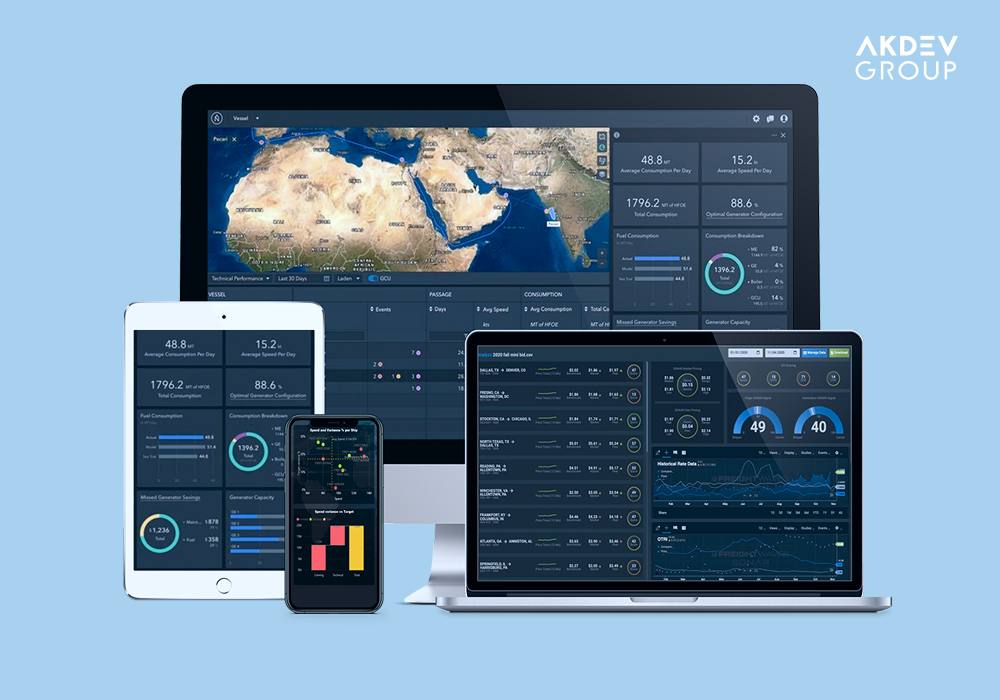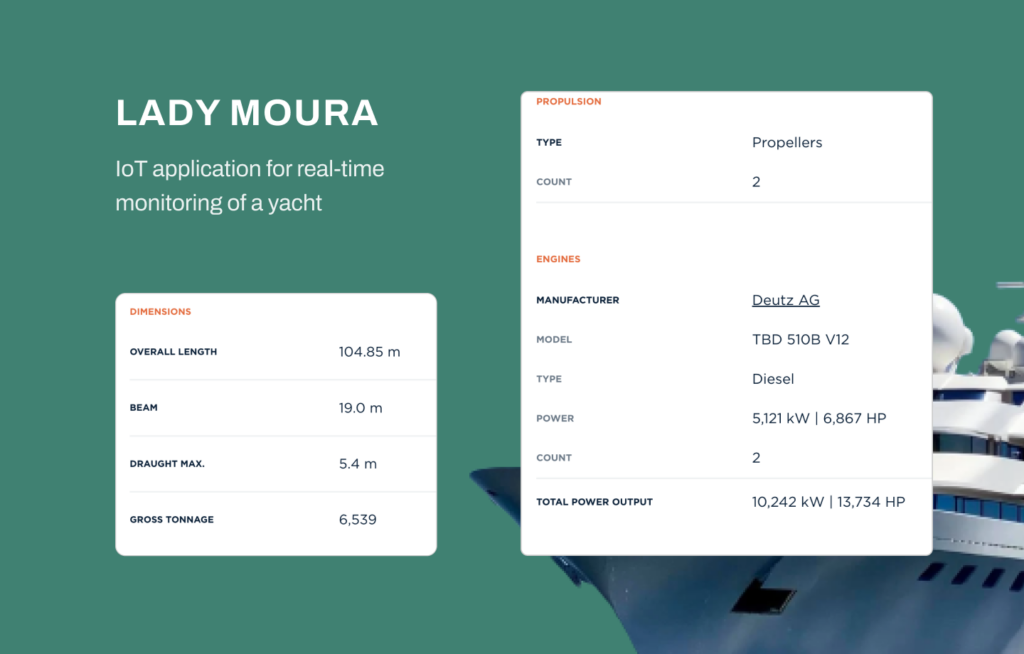Trends of 2025 in Marine Tech: Case Studies and Solutions
Around 80 percent of goods are transported by ships. Therefore, the maritime industry is very important for the global economy.
Why should you follow trends?
In the 19th century, railways were a revolutionary means of transport. They provided fast transportation of goods and passengers. Railways dominated for decades, but in the 20th century, they began to be replaced by cars and airplanes. This happened because people thought that nothing could bypass railways. Their owners did not invest in innovations and improvements.
In order for maritime transport to be in demand, you need to follow trends and improve bottlenecks in time. In this article, we will talk about the trends in Marine Tech and examples of its implementations.
1. Implementation of modern cloud technologies
Cloud technologies are flexibility, speed and savings. They allow businesses to focus on their tasks and not on supporting infrastructure. There is no need to buy expensive hardware and maintain servers. You only pay for what you use. Clouds update, patch and scale themselves.
It is expected that by 2025 the volume of data stored in the cloud will reach 200 zettabytes.
AKDev case
We helped create logistics platform, which connects suppliers and shipping companies.
This helps find partners faster, reduce costs, and simplify cargo delivery. The platform runs on the Amazon AWS cloud system. AWS invests billions in data protection. So the project is not afraid of any cyber threats.
2. Migration to modern technologies
Technologies are developing at a rapid pace. What was the cutting edge trend yesterday may go out of fashion tomorrow. This is also important for maritime technologies, because migration provides benefits:
- Modern platforms often offer higher speed and better stability.
- Newer systems provide better protection for your data.
- New technologies allow you to scale applications as your business needs grow
AKDev case
We were involved in migration for a Dutch ferry booking site. Our team migrated the system from Angular to Vue 3.

Vue 3 is one of the most productive frontend frameworks. It copes with most web application tasks without manual optimizations. This makes the website easier to support.
Now it works faster, more convenient and safer. This helps tourists and agencies easily book trips. This focus on user experience mirrors the digital transformation in the travel industry. Travel companies are also leveraging modern tech stacks to enhance operational agility.
3. Focus on analytics and data
Another trend in Marine tech is data-driven decision-making. It is essential to the success of any business, including the maritime industry. Automated analytics systems provide valuable insights in real time, so your business decisions are based on accurate data rather than guesswork and assumptions.
AKDev case
We developed a fleet management platform Marine Fields. It helps companies monitor their ships in real time.

The platform shows where vessels are, how they are performing, and provides advice on how to improve their performance. We have also added a chat for easy communication.
4. Integration with payment systems
For the maritime industry, integration with payment systems is important because it simplifies and speeds up financial transactions, which are an integral part of work in this area.
Integration with payment systems allows you to automate these processes, minimize delays and reduce the risk of errors that can occur during manual data entry.
AKDev case
We participated in the creation of a platform where shipowners can find and order spare parts from suppliers. Everything is transparent: you can see where the part is, how much it costs, and when it will arrive. The Stripe payment system was used there. This payment system was chosen because Stripe complies with PCI DSS security standards.
5. The Internet of Things
IoT is a network of interconnected devices and sensors that communicate seamlessly, providing real-time data and insights.
IoT technology can help shipping companies obtain a holistic view of their operations, lower operational costs, and offer a better quality of service overall. The benefits of IoT in the maritime industry include increased efficiency, cost reduction, data capture for better decision-making, and minimizing risks.
AKDev case
Development of the Lady Moura IoT application for monitoring yacht parameters in real time with a convenient and intuitive interface for users.

With a focus on cloud technologies, integration with payment systems, IoT and detailed analytics, shipowners, operators and managers help their fleets stay relevant and competitive.
Learn how AKDev Group can support your business by increasing efficiency, reducing costs and managing compliance.
Modern maritime and logistics operations are under pressure to be more efficient. IoT offers a way to transform fleets by connecting ships, trucks, containers, and infrastructure. With IoT companies gain real-time visibility into location, engine performance, fuel use, and environmental conditions. This visibility shifts operations from reactive to predictive. It also enables faster decision-making and […]
AKDev Group is a leading software development company in Georgia. 2025 was a year of deep specialization. If I could sum it up in one phrase, it would be “from recognizing competencies to scaling them.”

